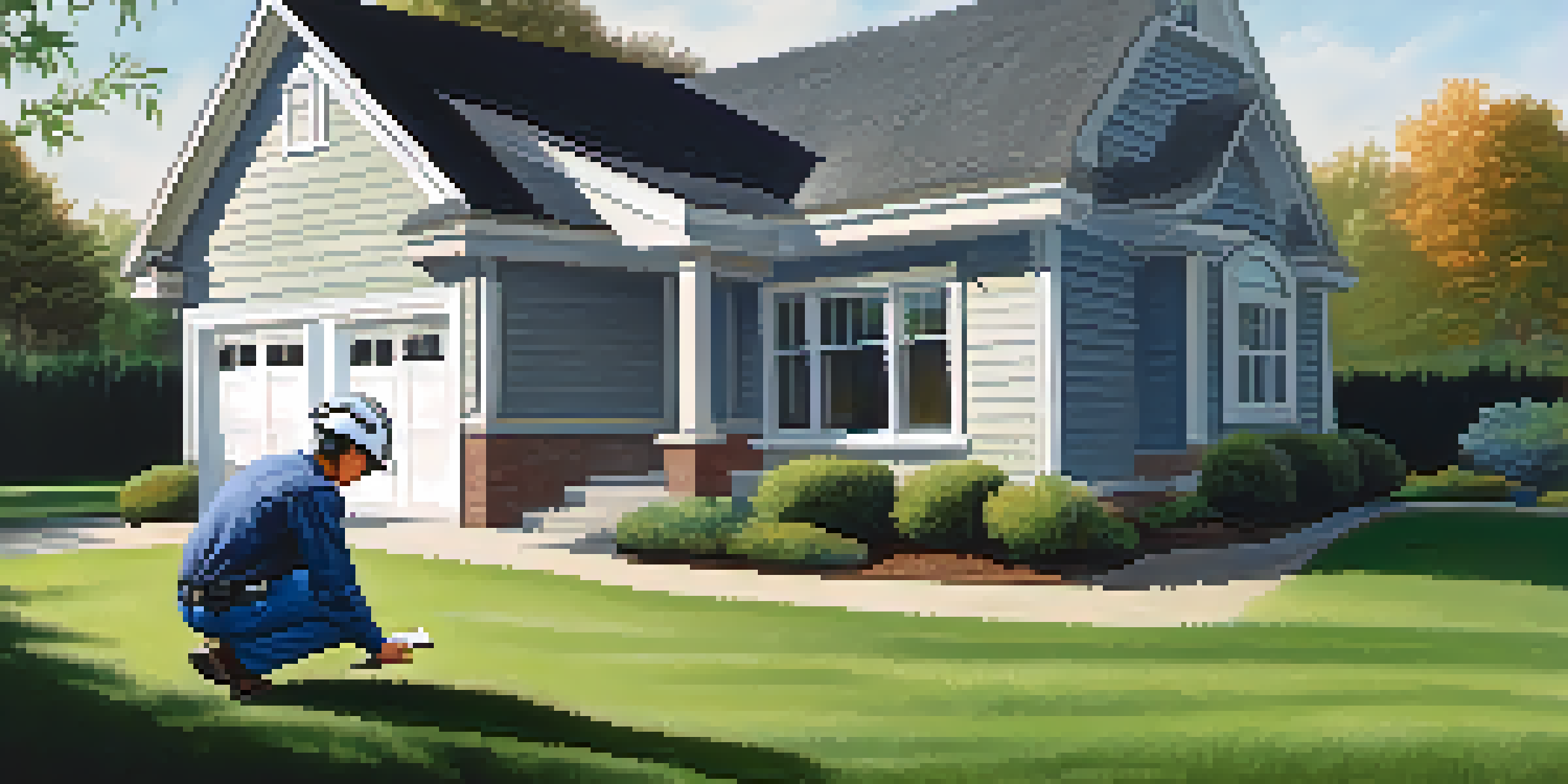Home Renovations: Reasons to Schedule Inspections

Understanding the Importance of Home Inspections
Home inspections are a crucial step in any renovation project. They help identify potential issues before they become costly problems. By scheduling an inspection, homeowners can ensure that their plans align with safety standards and regulations.
An ounce of prevention is worth a pound of cure.
Think of an inspection as a health check-up for your home; it reveals underlying issues that might not be visible at first glance. Just like you wouldn’t skip a doctor’s appointment, you shouldn’t overlook this essential step in home renovations.
Ultimately, this proactive approach not only protects your investment but also provides peace of mind as your project progresses.
Avoiding Costly Mistakes Through Inspections
Renovations can be expensive, and the last thing you want is to discover a major flaw after the fact. Inspections help uncover issues such as structural damage or faulty wiring before renovations begin, which can save you thousands down the line.

For instance, imagine starting a kitchen remodel only to find out that the plumbing needs a complete overhaul. An inspection can catch such problems early, allowing you to budget accordingly.
Home Inspections Save You Money
Identifying potential issues before renovations start can save homeowners thousands in unexpected repair costs.
By addressing these potential pitfalls upfront, you can avoid the stress and financial strain of unexpected repairs during or after your renovation.
Ensuring Compliance with Local Building Codes
Every locality has its own set of building codes and regulations that must be followed during renovations. These codes are designed to ensure safety and structural integrity. Failing to comply can lead to fines or even forced removal of non-compliant work.
The best way to predict the future is to create it.
Scheduling an inspection helps ensure that your renovation adheres to these codes. It’s like having a guide who knows the rules of the road, preventing you from making costly mistakes.
In addition, complying with local regulations can enhance the value of your home and make it more attractive to future buyers.
Enhancing Safety for Your Family and Guests
Safety should always be a priority when renovating your home. Inspections can identify hazards such as mold, asbestos, or structural weaknesses that could pose risks to your family and any visitors.
Imagine discovering that your home has hidden mold only after you’ve completed a renovation. Not only could this affect your health, but it could also lead to expensive remediation efforts.
Safety is Key in Renovations
Regular inspections help uncover hidden hazards, ensuring a safe environment for your family and guests.
By scheduling an inspection, you can address safety concerns upfront, ensuring a secure environment for everyone who enters your home.
Gaining Insights on Future Renovations
An inspection can provide valuable insights that inform not only your current renovation but also future projects. By understanding the strengths and weaknesses of your home, you can make more informed decisions moving forward.
For example, if the inspection reveals that your roof has a limited lifespan, it may influence your choice of materials or the timing of future renovations.
This knowledge can help you prioritize projects and allocate your budget effectively, ensuring that your home continues to meet your needs over time.
Building Trust with Contractors
When you hire contractors for your renovation, having an inspection report can help build trust. It shows that you’re serious about the quality and safety of the work being done.
A well-documented inspection report can serve as a reference point for contractors, helping them understand the existing conditions and challenges they may face during the renovation.
Choose the Right Inspector
Selecting a qualified inspector is crucial for gaining valuable insights and ensuring a successful renovation experience.
This transparency fosters a collaborative relationship, making it easier to address any concerns that may arise during the project.
Protecting Your Investment in the Long Run
Home renovations are a significant investment, and protecting that investment should be a top priority. Regular inspections can help ensure that your renovations are built to last, safeguarding your financial commitment.
Think of it like maintaining a car; regular check-ups can prevent costly breakdowns down the road. Similarly, inspections can catch issues early, preserving the integrity of your renovation.

This proactive approach not only maintains your home’s value but also enhances your overall living experience.
Finding the Right Inspector for Your Home
Choosing the right inspector is crucial to getting the most out of your home renovation insights. Look for professionals with good reviews and relevant experience in the type of renovations you’re undertaking.
Don’t hesitate to ask for references or check their qualifications. A reputable inspector will not only provide a thorough report but also be willing to answer your questions and guide you through the process.
Taking the time to find the right inspector can help ensure that your renovation is not only successful but also a rewarding experience.